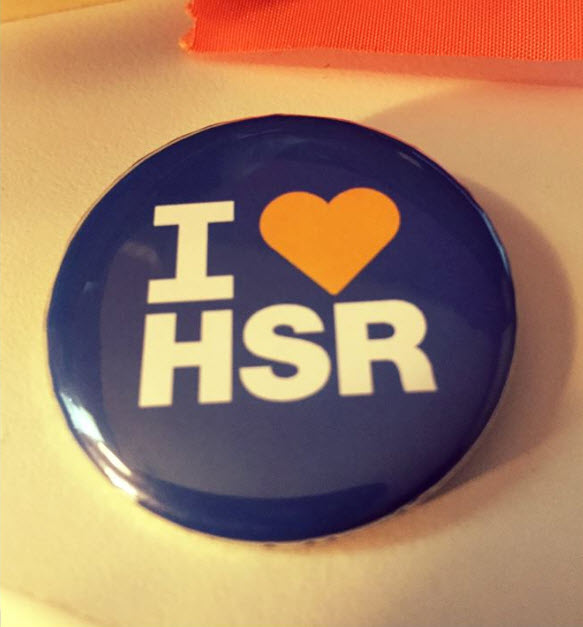I consider part of my role as AcademyHealth President and CEO to be an ambassador for the field. I wear my “I <3 HSR” button proudly, pound the pavement on Capitol Hill to ensure health services research (HSR) is adequately funded, and author blog posts about the value and relevance of HSR to improve health and health care.

The halls of senate office buildings and well-read publications like Health Affairs are familiar to me and to many in our community, but earlier this spring I had the opportunity to attend an event a bit farther afield: the Milken Global Conference. And it was anything but familiar!
In case you’re also unfamiliar with the conference, the annual gathering of political and business elites typically features big name celebrities (this year included Jason Bateman, Laura Dern, and Gayle King), CEOs from some of the country’s largest corporations, and, of course, political lightning rods from both sides of the aisle such as Karl Rove, Neera Tanden, and Ivanka Trump.
For someone who typically attends academic and research focused meetings, this was…different.
While I only heard the term “health services research” twice on panels (from Tanisha Carino and Josh Ofman), the use of evidence and the need for evidence was discussed repeatedly during the conference.. Questions about “What is working? In what setting? Compared to what?” came up frequently across conversations. When I ran into another attendee from our health services research and policy community (one of maybe only a dozen I spotted), he joked, “These are not our people.”
However, for health services research to achieve its goal of informing decisions that improve lives and health care, we need to reach across sectors to those from the biomedical, technology, and financial communities. Our field could also benefit from the entertainment industry for insights on how to better tell our stories to reach the audiences we strive to engage and inform. Just look at what Alan Alda has done for science communication!
For example, one of the most interesting sessions I attended tackled ethical dimensions arising from advances in Artificial Intelligence (AI). Speakers explored the range of predicted impacts on work, what distinguishes machines and humans, and specific examples of AI innovations. A key take away for me was that AI is all about optimizing toward a goal, not questioning or changing the goal. In health care, we’re all too familiar with the ways technology can inhibit rather than support our goals for better care. A month earlier, our Health Datapalooza community was abuzz with conversation about the shortcomings of electronic health records after Kaiser Health News and Fortune published a deep dive into the issue. (See also Atrium Health’s Dr. Edward Kim’s response to the medical community here.)
In another session, Amitabh Chandra was his reliably provocative self, observing that we have “the most inefficient [biomedical innovation] system” and calling for “weaning universities off their addiction to indirect costs” paid for by the National Institutes of Health. He also noted that the lack of adequate public support for research drives academic investigators to seek industry or capital market support, effectively transferring their work from a public to a private good. This also struck close to home as we in the academic community bemoan a lack of incentives for open science and open access publishing. Other speakers spoke about the surging investments in biotech resulting in “the Golden Age of Biotech.”
Finally, I was particularly pleased to see several sessions were focused on diversity and inclusion. Many had hard data on the implicit and explicit impacts of bias. For example, in performance evaluations, those of men focus on outcomes whereas those of women include far more emphasis on behavioral critiques. And I’d be lying if I didn’t admit that this point, from Ahu Yildirmaz on gender equity, did make my blood boil a little: if we continue at the current rate of progress on pay equity (4% improvement in last 10 years), it will take 50+ years for women to achieve pay equity. As the field of health services research looks to the future, we have to be active and intentional in ensuring that our field is creating a culture of inclusion, seeking out, retaining and promoting individuals with diverse backgrounds and abilities.
Over the next few months, AcademyHealth leadership, together with our board, will be deeply engaged in a strategic planning process to consider what the future of our organization must look like so that we can continue to advance our mission of supporting the generation and use of evidence to improve health and health care. Spending time outside the HSR arena helped expand my thinking about the role we can play in a world that is changing faster than ever around us. We are not alone in the challenges we face and we have a lot to learn from other industries in how to overcome them.